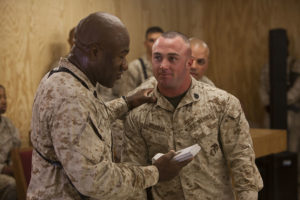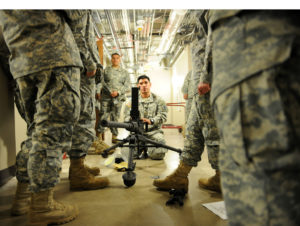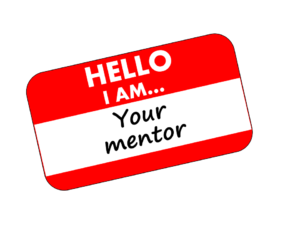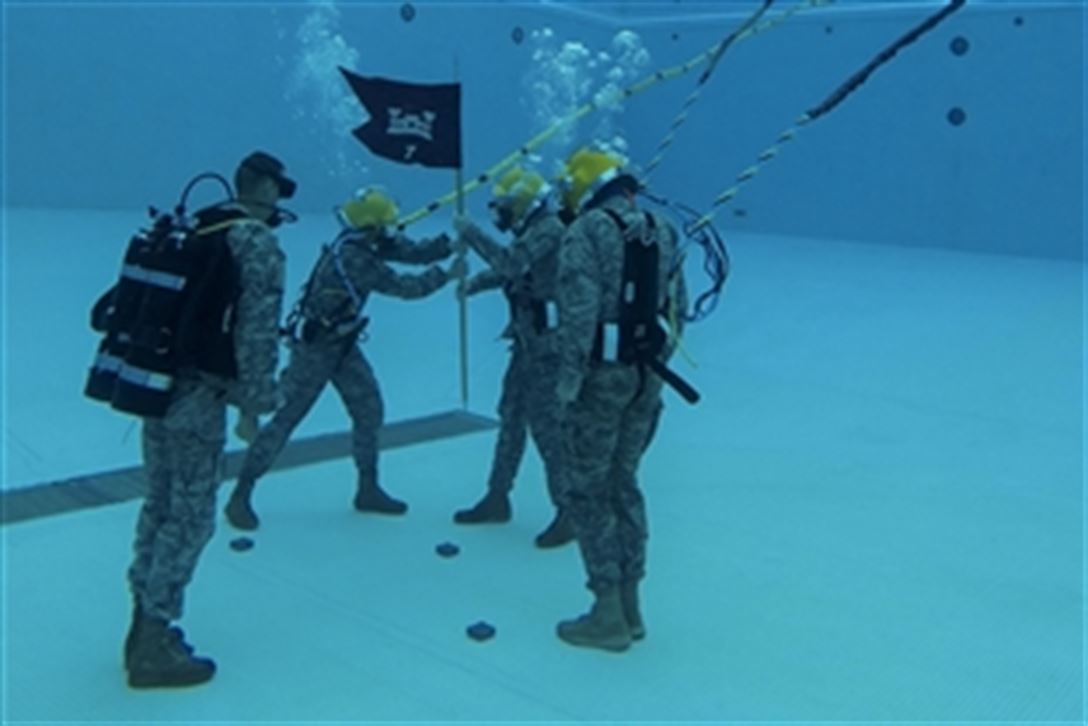
Corporals Course empowers next generation of leaders in Afghanistan [Image 3 of 7] Photo by Cpl. Paul Peterson
mentor (n) 1. a wise and trusted counselor or teacher. 2. an influential senior sponsor or supporter.
From the first moment that a service member steps into an office or motor pool at a new duty station, they look around for someone to let them know what’s going on. If they’re smart, they sit back and observe things for a while before they start running their mouth or wrecking stuff. They look for those that have been there longer than they have, to show them the ropes, to let them know how the culture is, to help them get the lay of the land.
The first thing they look for is a mentor, even if they don’t call it that.
A significant aspect of military service is the personal and professional development that goes on in each individual. We had someone that we looked up to; a senior platoon member, our squad leader, a hard core platoon leader. That commander that was tough, but fair, and looked out for their troops. Sometimes, however, service members chose their mentors poorly; they would fall in with the “wrong crowd” and learn the wrong kind of ropes. Good or bad, the examples of the leaders we had while we were in shaped us, defined us, made us who we were as Soldiers or Airmen or Sailors or Marines.
If we were motivated to succeed in the military, we sought out those individuals who were knowledgable and effective. In the Army, we called it being “technically and tactically proficient.” If we wanted to do more, get better, be stronger, we looked for those who knew how to get us there and had the willingness to share their knowledge.
That led to success in the military, and I’m here to tell you: working with a mental health professional can do the same. You don’t have to be crazy, have PTSD, be challenged by severe depression, disrupted relationships, or substance abuse. Transition from the service to your post-military life has significant challenges that are not related to a diagnosable mental health condition, such as a shift in identity. A loss of a sense of purpose and meaning. Trying to figure out how to meet old needs in new ways. If you looked around for someone who was technically and tactically proficient in your chosen endeavor when you were in the military, why not do the same once you got out? Because people would think you’re weak, you don’t know what you’re doing? I don’t know about you, but that kind of thinking has caused me a lot of pain in the past.
Military Mentorship

Since my retirement, I’ve thought a lot about the mentors I had over my 22 year career. My first squad leader taught me how to be a Soldier. When I was newly promoted and reported to the 82nd Airborne Division, my first squad leader there taught me how to be a Noncommissioned Officer. I recall a Platoon Sergeant who pulled me and another squad leader aside, took us over next to a tree, and asked us: “Have you ever done a sector sketch?” For those not familiar, a sector sketch is a drawing that shows where each of your unit’s positions were, what direction they would be firing in, main terrain features, that kind of stuff. Jeff, the other squad leader, and I hadn’t had anyone take the time to show us how to do one. Our Platoon Sergeant didn’t have to teach us…he could have knocked it out himself, turned it in, and went to sleep. Instead, he took the time to teach us something we didn’t know, in order to improve our tactical proficiency. All down the line of my military career, I can point to someone at each level of my leadership that helped mold and shape me, for better or worse, into who I was. Mentorship was such an ingrained part of the military lifestyle that it came easily and naturally to us. When we got out, though, did that change?
Civilian Mentorship

My civilian career as a mental health counselor overalapped my military career. More specifically, the two careers were bridged by my educational pursuits, and I needed mentors in both my educational pursuits as well as my current profession. So I looked for them. Sometimes they cropped up unexpectedly; I just so happened to go to the Education Center to talk about choosing a Master’s Degree program, and the counselor I talked to turned out to be just the right one I needed. He was a retired Army Noncommissioned Officer, had gotten his degree in clinical mental health counseling, and was preparing to transition to a position with the Army Substance Abuse program. He was at the education center for less than a month, and just so happened to be there on the day I walked in; but I credit that forty-five minute conversation with him as a significant turning point in my educational career. I would have made some serious mistakes in choosing programs, if it weren’t for him. Later in my development, I was blessed enough to be connected to another mentor, Dannette Patterson, who has supported me…and prodded me…in my new career.
Qualities of a mentor
In my opinion, a mentor is someone who has your best interests at heart. Who gives you the advice you need, rather than the advice you want. Ideally, a mentor is someone that has no interest outside of your success. Your workplace supervisor may be a great teacher, and a mentor, but they have a vested interest in the success of your organization as well as your personal success. I had opportunities in the military which would have been great for me to pursue, but it would have meant that I would have to be allowed to leave the organization I was in. Guess what happened? I stayed put. A true mentor is one that helps you understand your needs better, and generates awareness in you of what is keeping you going and what is holding you back.
Mental Health Professional as a Mentor
Mental health counselors, therapists, psychologists, whatever you want to call them, they can be seen as mentors, too. We don’t give advice, or at least, I don’t. I don’t tell the veterans I work with what to do. I don’t judge them if they make a choice that’s not in their best interest…I support them. I have the technical knowledge of skills and techniques that can help them see things in a different way. I have the ability to help them apply that knowledge to their situation. I, and other mental health professionals, have the ability to support service members in their transition and help them change how they think about and see the world, in order to be a better version of their excellent selves.
If you’re struggling with a resume, you reach out to organizations like Hire Heroes USA to help you write it. If you’re struggling with interviewing, you find someone to help coach you through that. If you’re not sure how to improve in your chosen profession, you look around for someone to help. Why don’t we do that when we’re struggling with stuck, negative, defeated thoughts? When we start drinking a little too much, or find that we’re arguing with our spouse more than we used to? When we find ourselves getting frustrated at all the little things? The resume, the interview, the professional development, all of those are structures that are built on the base of our mental health and wellness, and finding a good mental health professional can help us make sure that base is steady and secure.
Intersted in learning more? I’m a Veterati mentor. Sign up, look for my name, and let’s talk about how a mental health professional can support your development.

The Head Space and Timing Blog is supported by the Colorado Veterans Health and Wellness Agency, a 501(c)3 Nonprofit in Colorado Springs, Colorado. The goal of the CVHWA is to provide military culturally competent mental health counseling to veterans and their spouses, regardless of characterization of discharge, time of service, or era of service. Our vision is to assist veterans to identify and remove barriers to their mental, physical, emotional, and behavioral wellness. For questions or inquiries, contact us!



